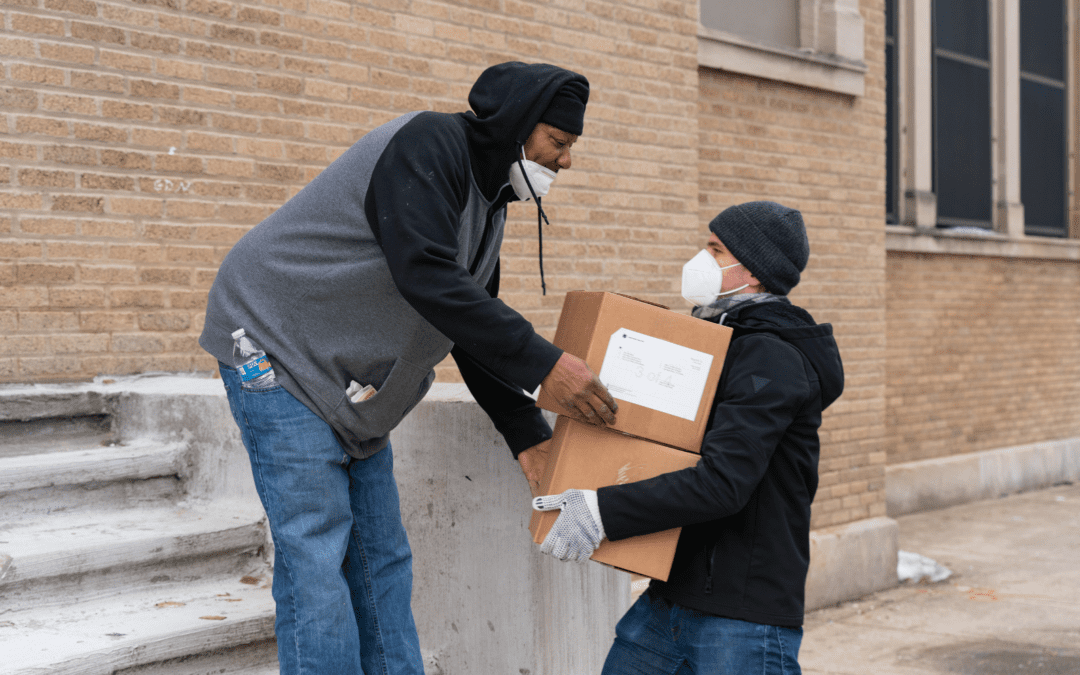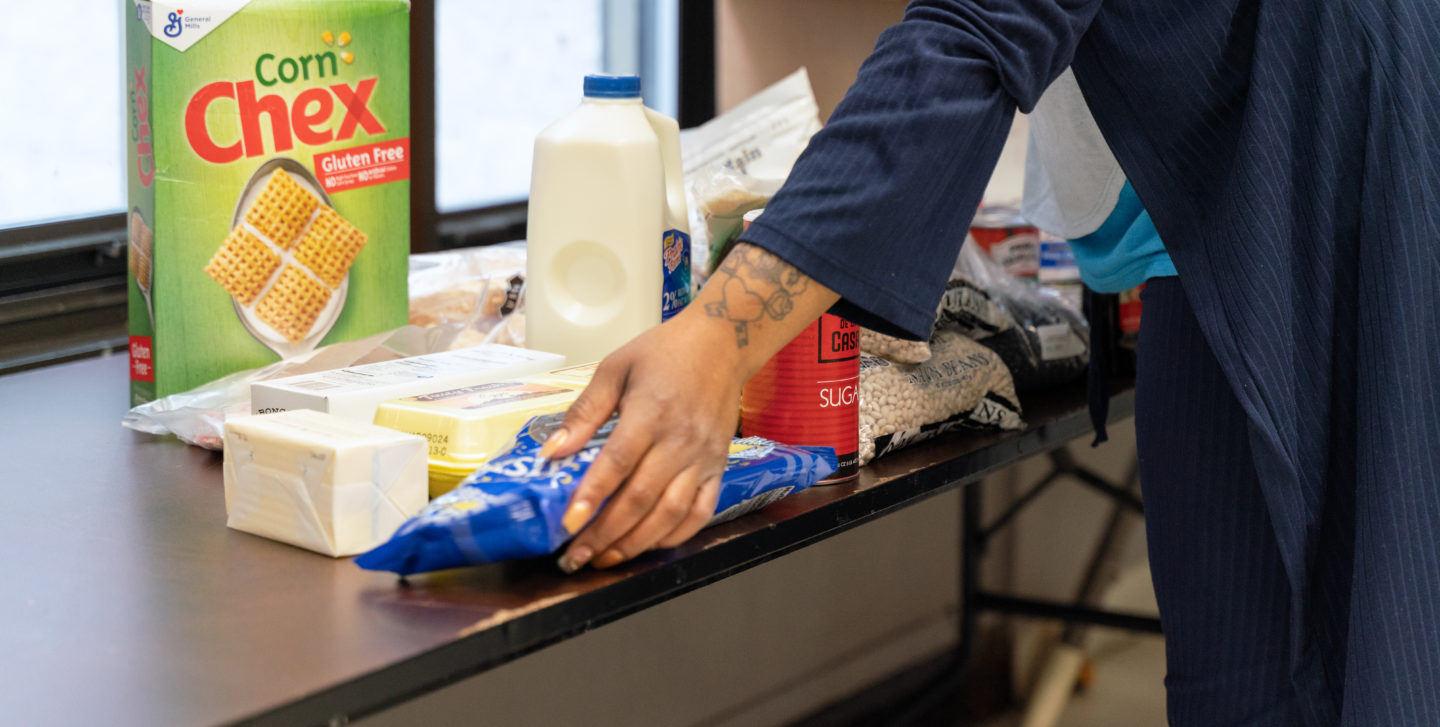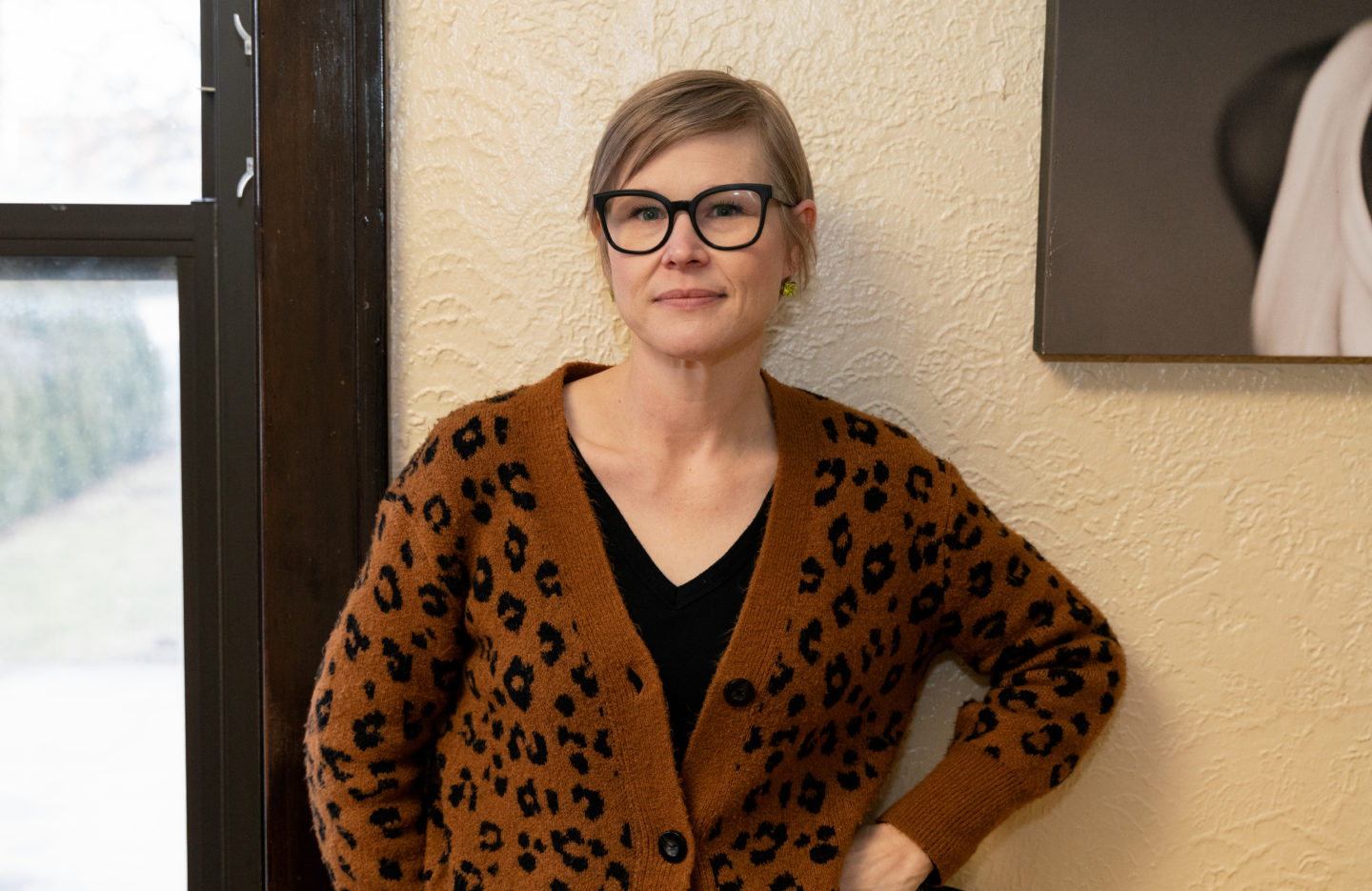On a recent afternoon just before a snowstorm, kids laughed and played inside the gymnasium at Primo Center’s Englewood shelter for mothers and their children.
Outside, one of Nourishing Hope’s teal vans pulled up to the curb. The van’s driver and Primo Center staff began unloading boxes of groceries, including fresh produce, meat, dairy and other staples, and stacking them inside the building.
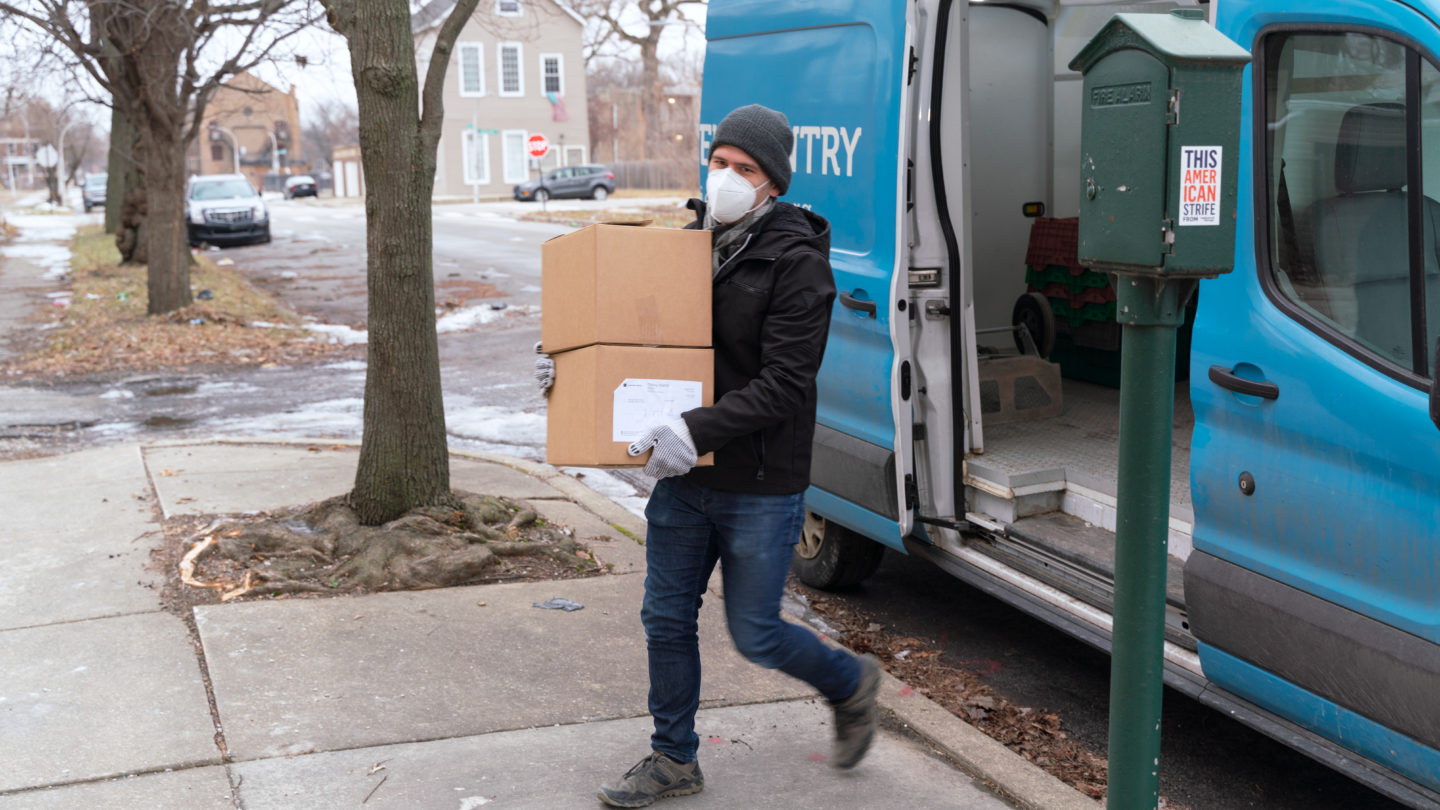
Lance Aguilar, a driver for Nourishing Hope, unloads boxes of groceries at the Primo Center shelter in Englewood. (All photos by Kenneth Johnson for Nourishing Hope)
Minutes later, Shanece, a mother of three young children, ages 6, 8 and 10, unpacked her groceries in one of the shelter’s kitchens. Every day, she looks for work, she said, in hopes of also securing permanent housing for her family.
The groceries alleviate one source of stress.
“This food helps feed me and my kids,” Shanece said. “It helps us to have a healthy mindset waking up every day.”
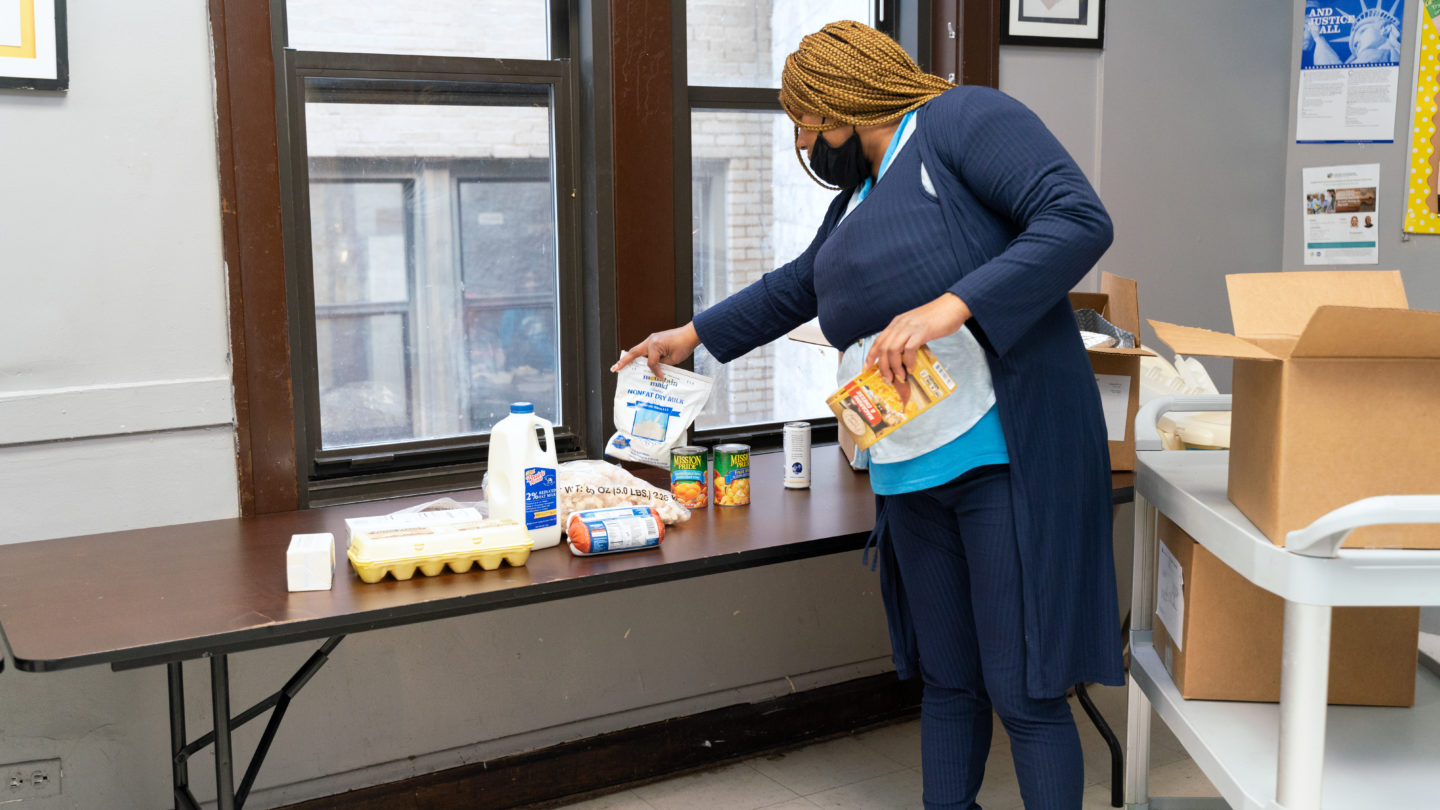
Shanece, a mother of three young children, unpacks groceries received from the Pantry’s online market program.
The partnership between Primo Center and Nourishing Hope, which began in September, is part of the Pantry’s growing online market program. Families who are temporarily housed in the Primo Center’s two shelters, in the Englewood and Austin neighborhoods, respectively, have the option of ordering free groceries online once a month. The same opportunity applies for families who have moved into permanent supportive housing with Primo Center’s assistance.
It’s one example of how the Pantry is trying to serve more people in need who might not be able to — or who might not want to — access a traditional food pantry.
“We’re trying to meet people where they’re at, with as much choice and dignity as possible,” said Jennie Hull, the Pantry’s chief program officer. “We’re grateful to partner with a trusted organization like Primo Center.”
Since its launch in September 2019, the online market program has served nearly 35,000 people across various pickup sites and partner locations in Chicago.
At Primo Center, the food helps families put their money toward other needs, particularly toward the end of the month when Supplemental Nutrition Assistance Program (SNAP) benefits run low, said LaShunda Brown, Primo Center’s chief officer of quality and impact.
“The way Nourishing Hope delivers our items, you can tell they were packed with respect,” Brown said. “It’s presented as if they were delivered to someone’s home.”
Founded in 1978, Primo Center serves about 1,000 people a year through temporary shelter, permanent supportive housing, early childcare and a variety of other supportive services. The Englewood shelter is for single mothers with children; the Austin location accommodates other family dynamics.
There are many complex reasons why a family might end up homeless, Brown said, including generational homelessness, mental health challenges and childhood trauma.
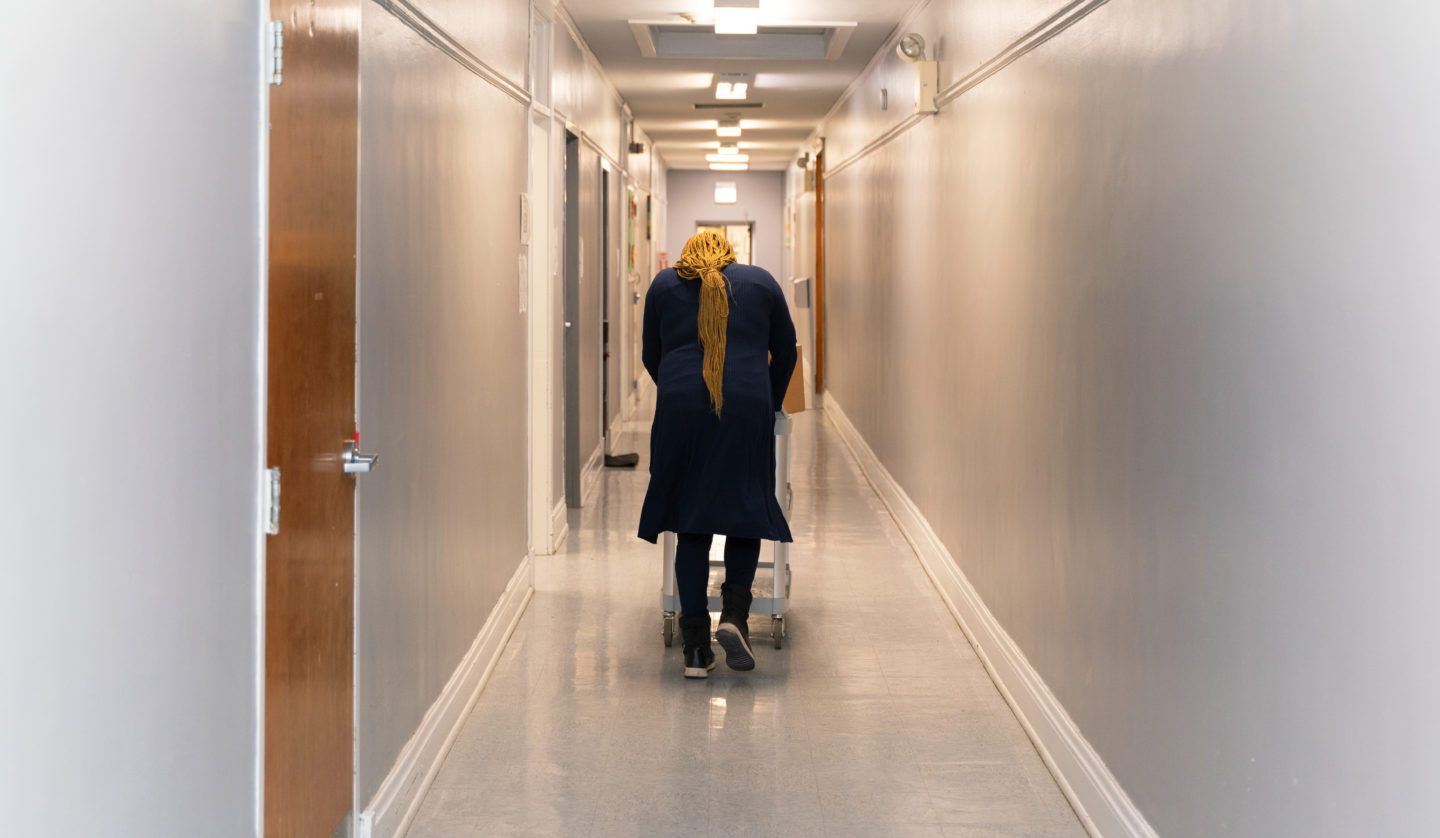
Primo Center helps parents with children find hope and opportunity through housing and other resources.
Primo Center uses a trauma-informed approach to help families find hope and opportunity. And Brown is a hands-on leader who has driven young mothers to the hospital to give birth and picked up others from the hospital who had no one else to turn to.
“When I see a mom and child in need — I was a young mom once,” Brown said. “I was a teen mom. I think about — what if it was me? But I had family support. And sometimes they just need support.”
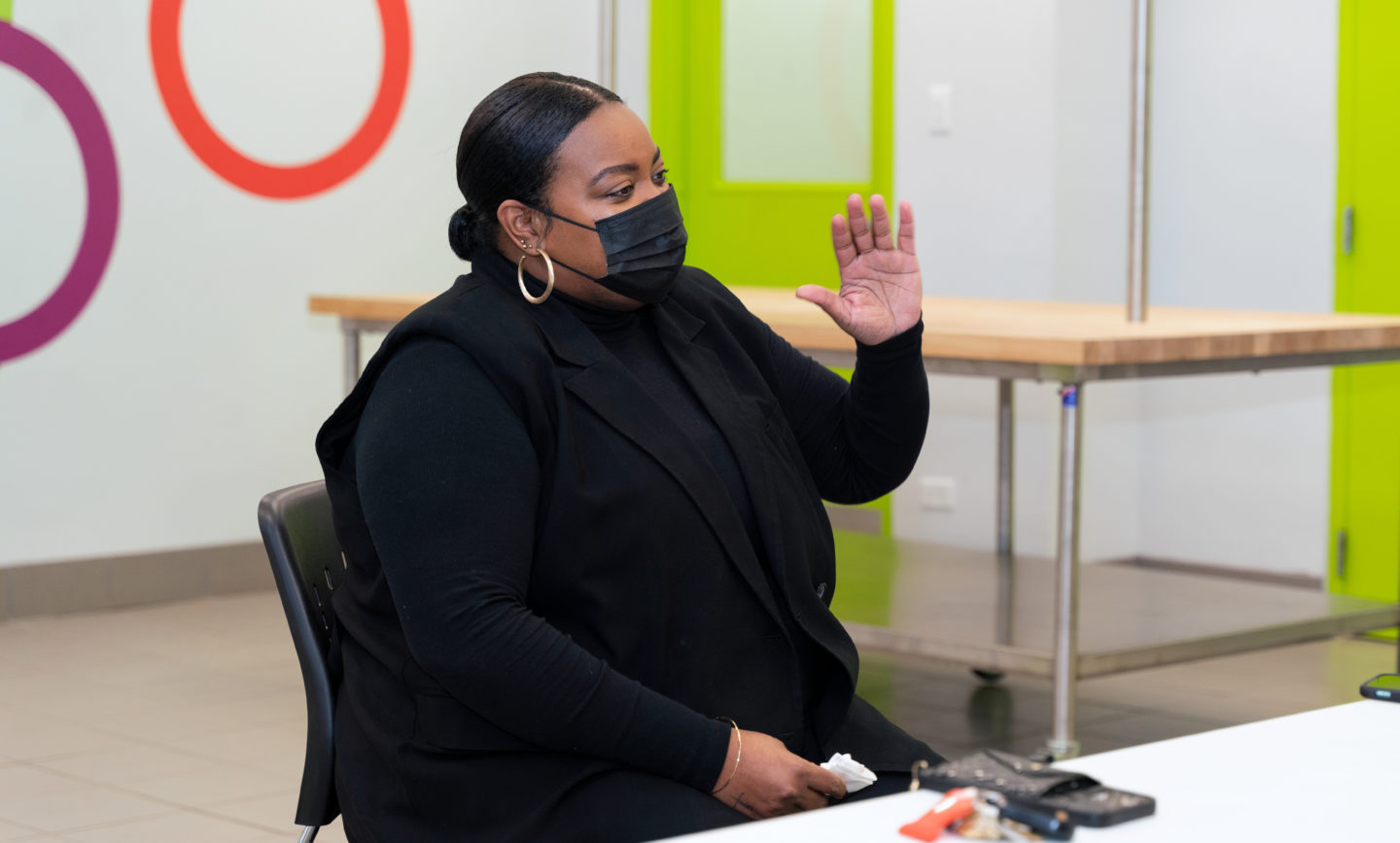
LaShunda Brown also connects families to rental assistance through the state’s homelessness prevention fund.
Primo Center has had to navigate various challenges during the pandemic, including reducing capacity at its shelters in order to keep people safe from the virus. And when the pandemic-related eviction moratorium ended last October, Brown said, more people turned to the nonprofit for shelter, supportive housing and other resources.
During the pandemic, many people have struggled with unemployment and feelings of isolation, said Mary Davenport, Primo Center’s program director of FUSE outreach. Those challenges are compounded when you’re experiencing homelessness.
“It’s nice to be able to lighten people’s lives up a little bit,” said Davenport, who often drives the boxes of food directly to her clients’ homes or shelters.
FUSE, which stands for frequent users systems engagement, is a city-funded crisis response team that supports chronically homeless families.
“My favorite part of this job is just giving people stuff,” Davenport said. “So if you can give someone seven boxes of free food, that’s a good day at work.”
